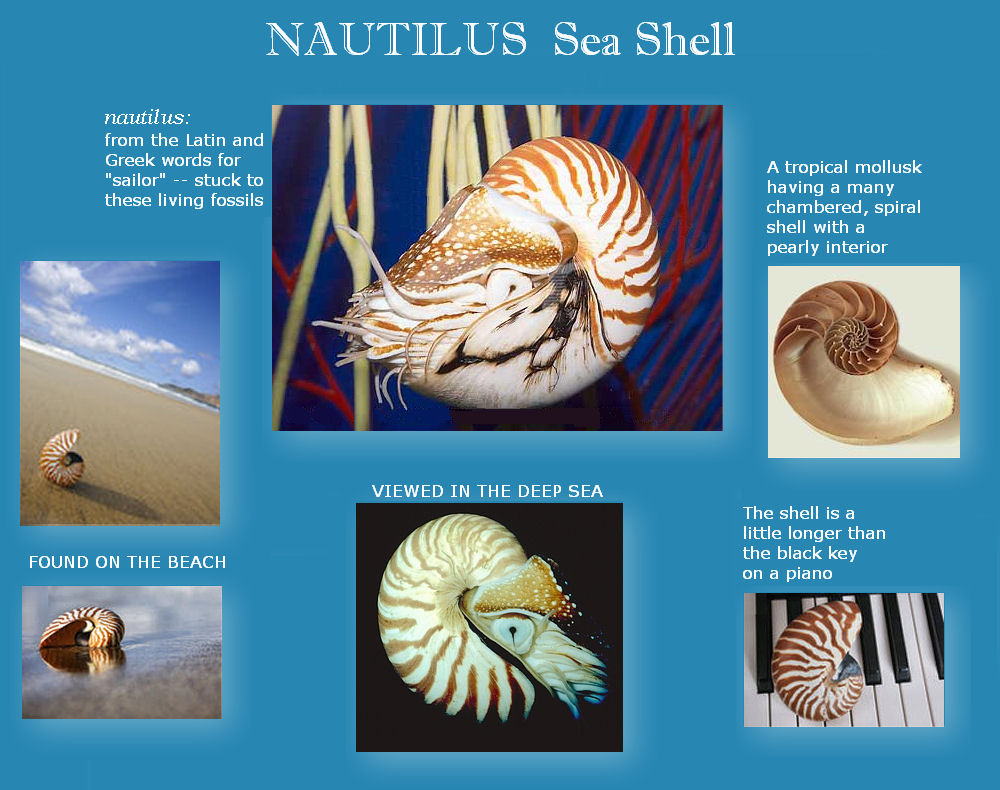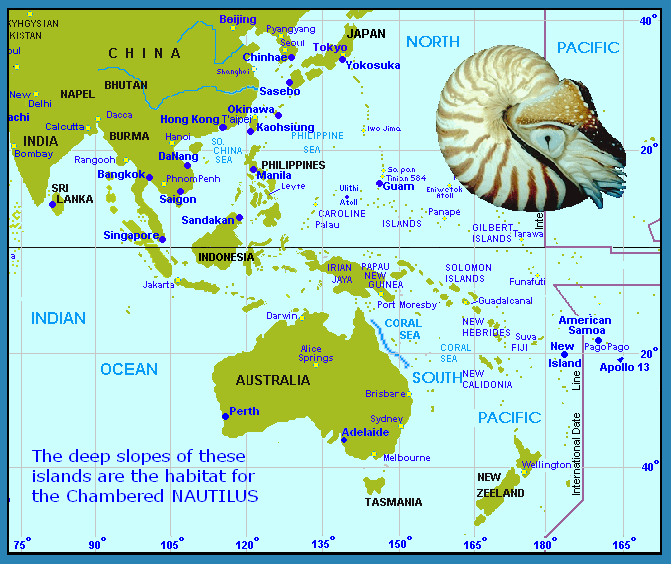 |
|
|
When the Western world saw its first
chambered nautilus (cephalopod molllusc), it
quickly became intrigued with the strange creature.
People imagined that the animal had a membrane that served as a sort of
underwater sail.
cephalopod: Any of various marine
mollusks of the class
Cephalopoda, such as the octopus, squid, cuttlefish, or nautilus,
having a large head, large
eyes, prehensile tentacles, and, in most species, an ink sac containing
a dark fluid used for protection or defense.
mollusc: An invertebrate with a soft
unsegmented body and
often a shell, such as a snail, mussel, or octopus
A Nautilus has great strength. These remarkable creatures have a shell that can withstand water pressure down to 2,000 feet. Although they cannot venture down 20,000 leagues, nautiluses can still dive far deeper than most fish or humans dare go. Nautiluses are only found in the Indo-Pacific, from 30° N to 30° S latitude and 90° to 185° W longitude. They inhabit the deep slopes of coral reefs. Outside the zoological world, Jules Verne immortalized nautiluses in literary tradition when he named Captain Nemo’s vessel Nautilus in 20,000 Leagues Under the Sea. The U.S. and British Navies followed suit, using the same name for many of their vessels. Go To: NAUTILUS PAGE |
